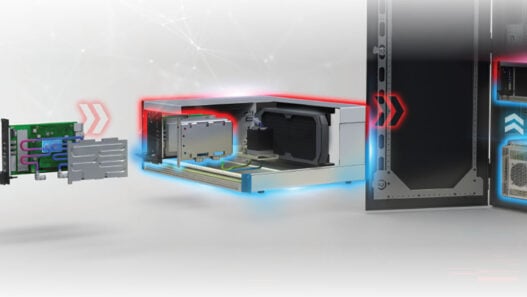Wind River Network Acceleration Platform provides a fast packet acceleration solution, leveraging multiple cores for the control and data planes to deliver multiple Gigabit Ethernet wire-speed performance. The data plane includes a network acceleration engine tuned for IPv4/IPv6 packet forwarding protocols running on a Wind River Executive, a small footprint operating system optimized for specific tasks, while the control plane is managed by a choice of carrier grade operating systems, either Wind River Linux or VxWorks. The platform also includes a lightweight hypervisor to provide carrier-grade protection for software running on individual cores. To handle the complexities that arise with multi-core software development, Wind River also offers a comprehensive suite of tools designed to effectively develop, test and debug software and simulate systems in complex multi-core environments.
Our customers have the mandate to solve the ever-increasing bottleneck created by explosive data traffic growth and at the same time increase ARPU (average revenue per user) by providing advanced packet handling solutions, said Mike Langlois, vice president and general manager, Networking and Telecommunications, Wind River. Wind River Network Acceleration Platform aims directly at these industry challenges by helping equipment providers configure multi-core-based network elements to achieve the critical performance and scalability needed to ensure reliable connectivity and delivery of multimedia content and applications.
Ultra-Fast Packet Forwarding Performance
Wind River Network Acceleration Platform measured IPv4 forwarding performance of 21 million packets per second utilizing just four processor threads on a Linux system using Intel® Xeon® 5500 series processor-based reference boards. This is more than five times the performance measured on the same system running native Linux networking in symmetric multiprocessing (SMP) mode. To best anticipate the behavior of new system designs, testing was conducted to measure performance while simulating the expected conditions of a production network. This required the testing of an entire system, complete with a Linux control plane in addition to data plane performance. While no single benchmark can characterize the performance of every system, Layer 3 forwarding is a fundamental metric used to indicate the efficiency of packet processing. The efficient Wind River design achieves the equivalent forwarding throughput of more than 14 Gigabit Ethernet ports, using only 50 percent of the available cores for packet forwarding.
Meeting the demands of our customers requires solutions that can quickly and more efficiently manage the exponential growth of data traffic on the network, said Keith Landau, executive vice president and chief product officer, GENBAND, a leading global supplier and innovator of next-generation IP gateways, session border controllers and FMC security solutions. Unlocking greater performance capabilities in our products through network acceleration in our underlying software gives us the flexibility and agility we need to deliver greater value to our customers and to remain one step ahead of our competition. We are working closely with leaders like Wind River to achieve these goals for our telecom products.
With bandwidth-intensive devices flooding the market, data traffic will continue to outpace voice traffic growth. Carriers and network equipment providers are rushing to increase bandwidth and looking to multi-core technologies to do this, said Simon Stanley, analyst at large, Heavy Reading, a leading market research firm for the telecommunications industry. Multi-core creates an entirely new set of complexities to consider and the software in multi-core architectures is becoming increasingly significant. Companies ready with tested and integrated multi-core solutions, such as Wind River, are definitely on the right track with this trend and put themselves in an advantageous position.
Consolidating multiple network workloads on Intel architecture will enable service providers to reduce their total cost of ownership by reducing engineering efforts and increasing platform flexibility with a common architecture, said Rose Schooler, general manager, Performance Products Division, Intel. The combination of Wind River Network Acceleration Platform with Intel Xeon processors is an example of a high-performance multi-core solution that can easily scale and reduce development cycles for customers.
Today’s news further underscores Wind River’s focused efforts to develop leading multi-core software solutions and represents a move to offer a broad set of integrated multi-core software components for multiple architectures serving specific vertical market segments. Wind River has a unique advantage within the embedded industry with its comprehensive software portfolio, which includes industry leading embedded software operating systems, runtime technologies, development tools (including virtual systems development) and an embedded test management solution, as well as a rich technology heritage of industry specific software solutions, combined with global professional services and support.







